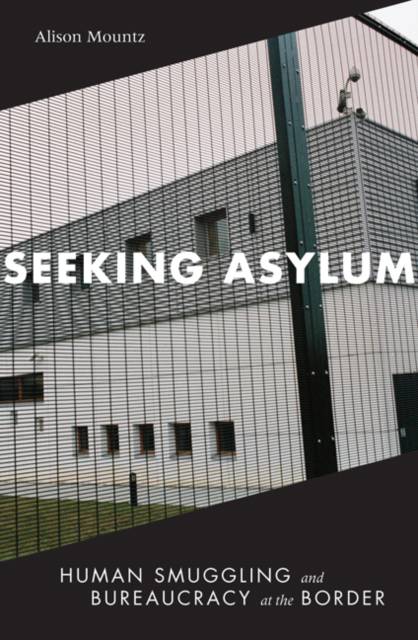
- Afhalen na 1 uur in een winkel met voorraad
- Gratis thuislevering in België vanaf € 30
- Ruim aanbod met 7 miljoen producten
- Afhalen na 1 uur in een winkel met voorraad
- Gratis thuislevering in België vanaf € 30
- Ruim aanbod met 7 miljoen producten
Zoeken
€ 47,45
+ 94 punten
Omschrijving
In July 1999, Canadian authorities intercepted four boats off the coast of British Columbia carrying nearly six hundred Chinese citizens who were being smuggled into Canada. Government officials held the migrants on a Canadian naval base, which it designated a port of entry. As one official later recounted to the author, the Chinese migrants entered a legal limbo, treated as though they were walking through a long tunnel of bureaucracy to reach Canadian soil. The "long tunnel thesis" is the basis of Alison Mountz's wide-ranging investigation into the power of states to change the relationship between geography and law as they negotiate border crossings. Mountz draws from many sources to argue that refugee-receiving states capitalize on crises generated by high-profile human smuggling events to implement restrictive measures designed to regulate migration. Whether states view themselves as powerful actors who can successfully exclude outsiders or as vulnerable actors in need of stronger policies to repel potential threats, they end up subverting access to human rights, altering laws, and extending power beyond their own borders. Using examples from Canada, Australia, and the United States, Mountz demonstrates the centrality of space and place in efforts to control the fate of unwanted migrants.
Specificaties
Betrokkenen
- Auteur(s):
- Uitgeverij:
Inhoud
- Aantal bladzijden:
- 264
- Taal:
- Engels
Eigenschappen
- Productcode (EAN):
- 9780816665389
- Verschijningsdatum:
- 26/04/2010
- Uitvoering:
- Paperback
- Formaat:
- Trade paperback (VS)
- Afmetingen:
- 137 mm x 213 mm
- Gewicht:
- 294 g

Alleen bij Standaard Boekhandel
+ 94 punten op je klantenkaart van Standaard Boekhandel
Beoordelingen
We publiceren alleen reviews die voldoen aan de voorwaarden voor reviews. Bekijk onze voorwaarden voor reviews.











